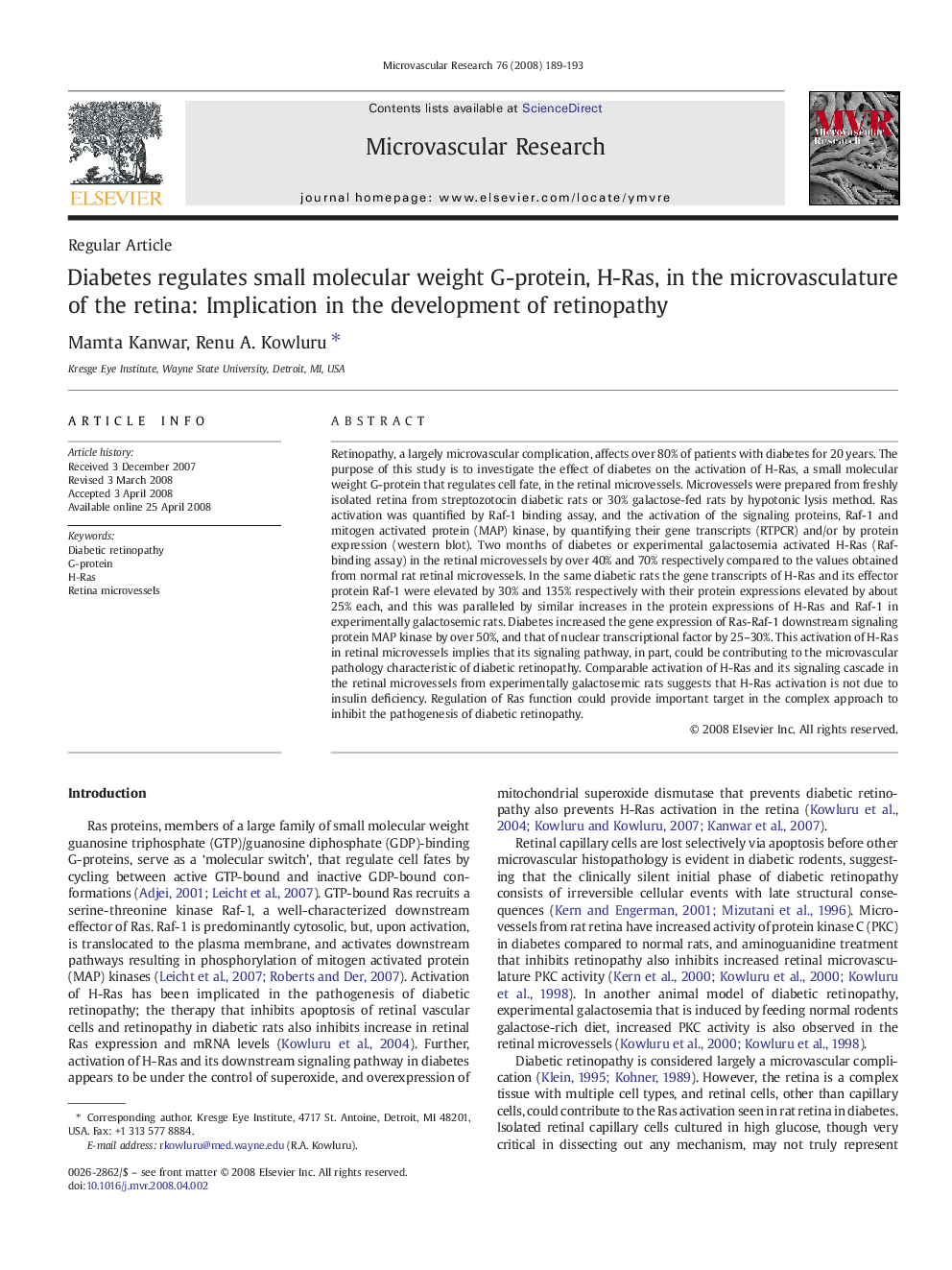| Article ID | Journal | Published Year | Pages | File Type |
|---|---|---|---|---|
| 10827207 | Microvascular Research | 2008 | 5 Pages |
Abstract
Retinopathy, a largely microvascular complication, affects over 80% of patients with diabetes for 20Â years. The purpose of this study is to investigate the effect of diabetes on the activation of H-Ras, a small molecular weight G-protein that regulates cell fate, in the retinal microvessels. Microvessels were prepared from freshly isolated retina from streptozotocin diabetic rats or 30% galactose-fed rats by hypotonic lysis method. Ras activation was quantified by Raf-1 binding assay, and the activation of the signaling proteins, Raf-1 and mitogen activated protein (MAP) kinase, by quantifying their gene transcripts (RTPCR) and/or by protein expression (western blot). Two months of diabetes or experimental galactosemia activated H-Ras (Raf-binding assay) in the retinal microvessels by over 40% and 70% respectively compared to the values obtained from normal rat retinal microvessels. In the same diabetic rats the gene transcripts of H-Ras and its effector protein Raf-1 were elevated by 30% and 135% respectively with their protein expressions elevated by about 25% each, and this was paralleled by similar increases in the protein expressions of H-Ras and Raf-1 in experimentally galactosemic rats. Diabetes increased the gene expression of Ras-Raf-1 downstream signaling protein MAP kinase by over 50%, and that of nuclear transcriptional factor by 25-30%. This activation of H-Ras in retinal microvessels implies that its signaling pathway, in part, could be contributing to the microvascular pathology characteristic of diabetic retinopathy. Comparable activation of H-Ras and its signaling cascade in the retinal microvessels from experimentally galactosemic rats suggests that H-Ras activation is not due to insulin deficiency. Regulation of Ras function could provide important target in the complex approach to inhibit the pathogenesis of diabetic retinopathy.
Keywords
Related Topics
Life Sciences
Biochemistry, Genetics and Molecular Biology
Biochemistry
Authors
Mamta Kanwar, Renu A. Kowluru,
